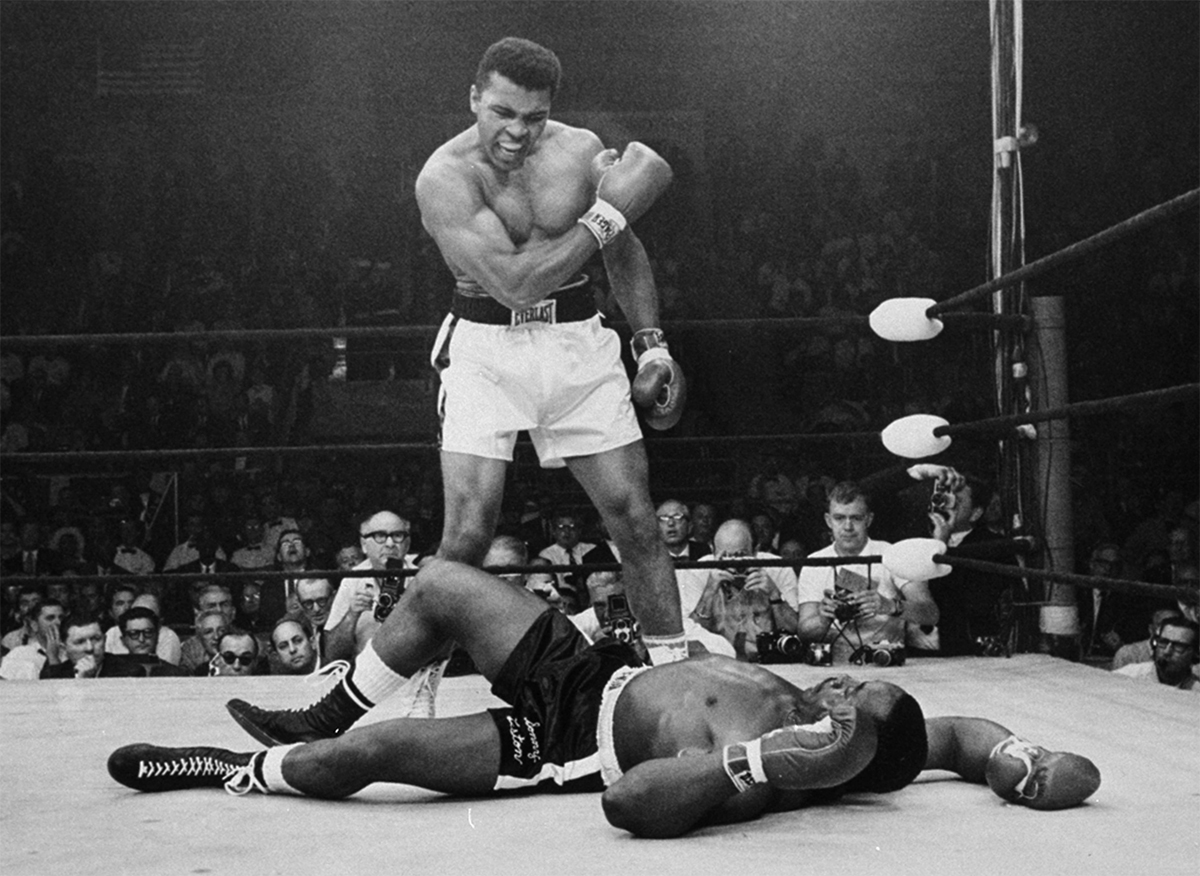The Iconic Muhammad Ali/Sonny Liston Photo Almost Happened in Boston

Muhammad Ali and Sonny Liston, Photo via AP
One of the most iconic images in sports photography is Neil Leifer’s shot of Muhammad Ali standing over a fallen Sonny Liston during their 1965 World Heavyweight Title bout in Lewiston, Maine. Though that picture is synonymous with Ali’s boxing career, the backstory as to why ‘The Greatest of All Time’ was fighting a championship match in a small town near the Canadian border is lesser known—and Boston plays a starring role.
In February 1964, Ali—then still known as Cassius Clay—became World Heavyweight Champion when he defeated Liston in a controversial match in Miami. As CommonWealth Magazine explains, Liston and Clay were both under contract to a promotion company called Inter-Continental Promoters Inc. Inter-Continental’s agreement with Clay said that if he beat Liston, they would promote the rematch.
At the beginning of the seventh round, Liston didn’t get up from his stool, complaining that his shoulder was bothering him. Clay, who was a major underdog heading into the fight, was declared the winner and new champion. This sparked speculation that the match was rigged, given that Liston didn’t tell anybody about his shoulder injury prior to the bout. One of Liston’s cornermen lent further credence to the theory when he told author David Remnick in his book, King of the World: The Rise of Muhammad Ali and an American Hero, that the shoulder incident was devised to orchestrate a rematch between the two:
“It was all bull—,” one of Liston’s cornerman, who is still alive, said. “We had a return bout clause with Clay, but if you say your guy just quit, who is gonna get a return bout? We cooked up that shoulder thing on the spot.”
Ali and Lipson signed a contract for a rematch, and Massachusetts agreed to host the fight after many other state boxing commissions declined. It was slated to take place inside the Boston Garden in November 1964, but Ali became ill in his suite at the Sherry Biltmore Hilton three days before the fight. He was diagnosed with a hernia, and the match was postponed for six months.
But when that date grew closer, the Massachusetts authorities who had previously permitted the fight moved to scrap it. According to Ali biographer Thomas Hauser, there were fears that the promotion company, Inter-Continental, was tied to organized crime. Ali also joined the Nation of Islam in 1964, and there were concerns that supporters of the recently assassinated Malcolm X were going to orchestrate violence at the match in order to extract revenge.
Then-Suffolk County District Attorney Garrett Byrne took the lead role in canceling the bout, citing the fact that Inter-Continental wasn’t licensed in Massachusetts. He said he believed that the fight’s licensed promoter, Sam Silverman, was a frontman for the company.
Eventually, the rematch was moved to Lewiston, where it was fought in front of 2,434 fans on May 25, 1965. It set the all-time record for the lowest attendance for a heavyweight championship fight.
Ali didn’t wind up boxing in Boston until 1977, where he fought an exhibition match at Hynes Auditorium.


